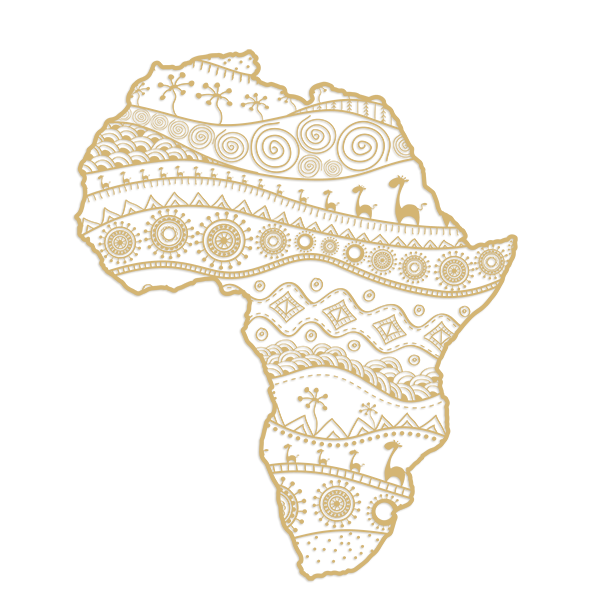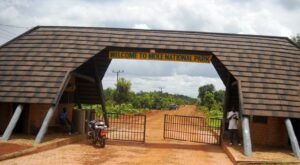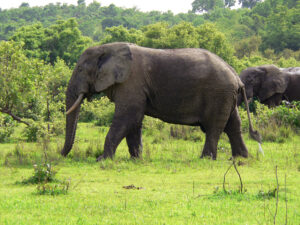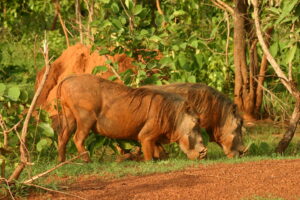
- Profile
- Tour Operators
- Accommodation
- prev
- next
- Get directions
- Bookmark
- Share
- Become an influencer
- prev
- next
Overview
Mole National Park is the largest national park in Ghana and provides the best wildlife experience in Ghana. This was the first national park to be established in Ghana and it covers an area of 4,912km².
Mole National Park has the widest range of wildlife in Ghana and is the only place in Ghana where you can experience elephants in the wild. In addition to the elephants, you will see antelope, bushbucks, monkeys, warthogs, baboons and other smaller wildlife.
Mole National Park is reasonably well set up to cater for tourists. Although it is more expensive than many other parts of Ghana it is well worth a visit. A two-day drive or domestic flight is required to visit Mole.
Because of the lack of predators, safaris can be done of foot – a unique experience that is quite different from the vehicle safaris in southern and eastern Africa. To actually walk so close to elephants is an exhilarating experience you will not ever forget!
Walking safaris usually take place in the early morning (6am) and late afternoon (4pm). These can be of 2 hours to 4 hours in length and are guided by an armed wildlife ranger.
Another option is to go on a driving safari, again with an armed ranger. These can be for up to a full day and gives you the opportunity to cover a much wider area of the park. You may wish to consider this if visiting during outside of the dry season.
The Mole Park Lodge has a viewing platform which overlooks a watering hole. Especially during the dry season (mid-December through mid-April), you will generally see herds of elephants grazing and bathing in the early morning or in the evening a couple hours before the sun sets.
While at Mole National Park, we also recommend visiting the ancient mud-and-stick mosque at Larabanga. This mosque is extraordinarily beautiful, but because of the hassle-factor at Larabanga, we recommend that you have your guide with you upon arrival.
Another fun excursion is to the nearby Mognori Cultural Village for a canoe safari or a cultural programme including drumming and dancing.
Location
-
Adaklu, Volta, Ghana
Vital Park Information
Ghana
4 840 km²
It's not safe to drink tap water in Ghana. In fact, many in Ghana still lack access to clean drinking water and safe sanitation. ... For many Ghanaians in rural areas, and for those without the ability to purchase bottled or bagged water, access to potable water is still an issue.
Ghanaian cedi
April, December
Especially during the dry season (mid-December through mid-April), you will generally see herds of elephants grazing and bathing in the early morning or in the evening a couple hours before the sun sets. While at Mole National Park, we also recommend visiting the ancient mud-and-stick mosque at Larabanga.




